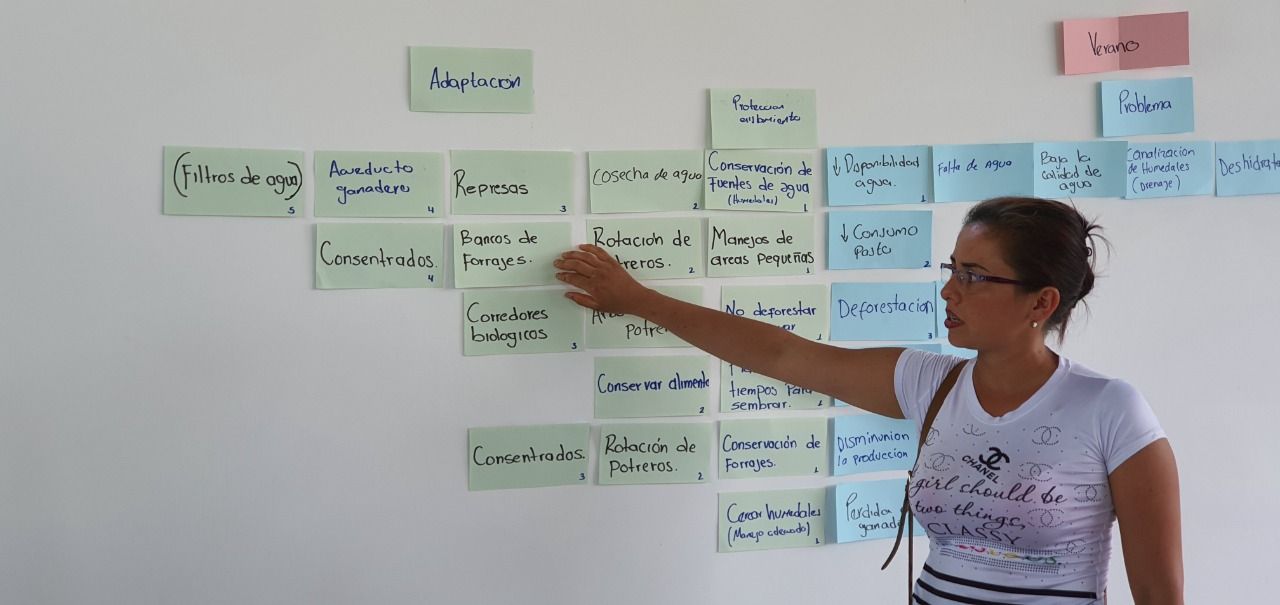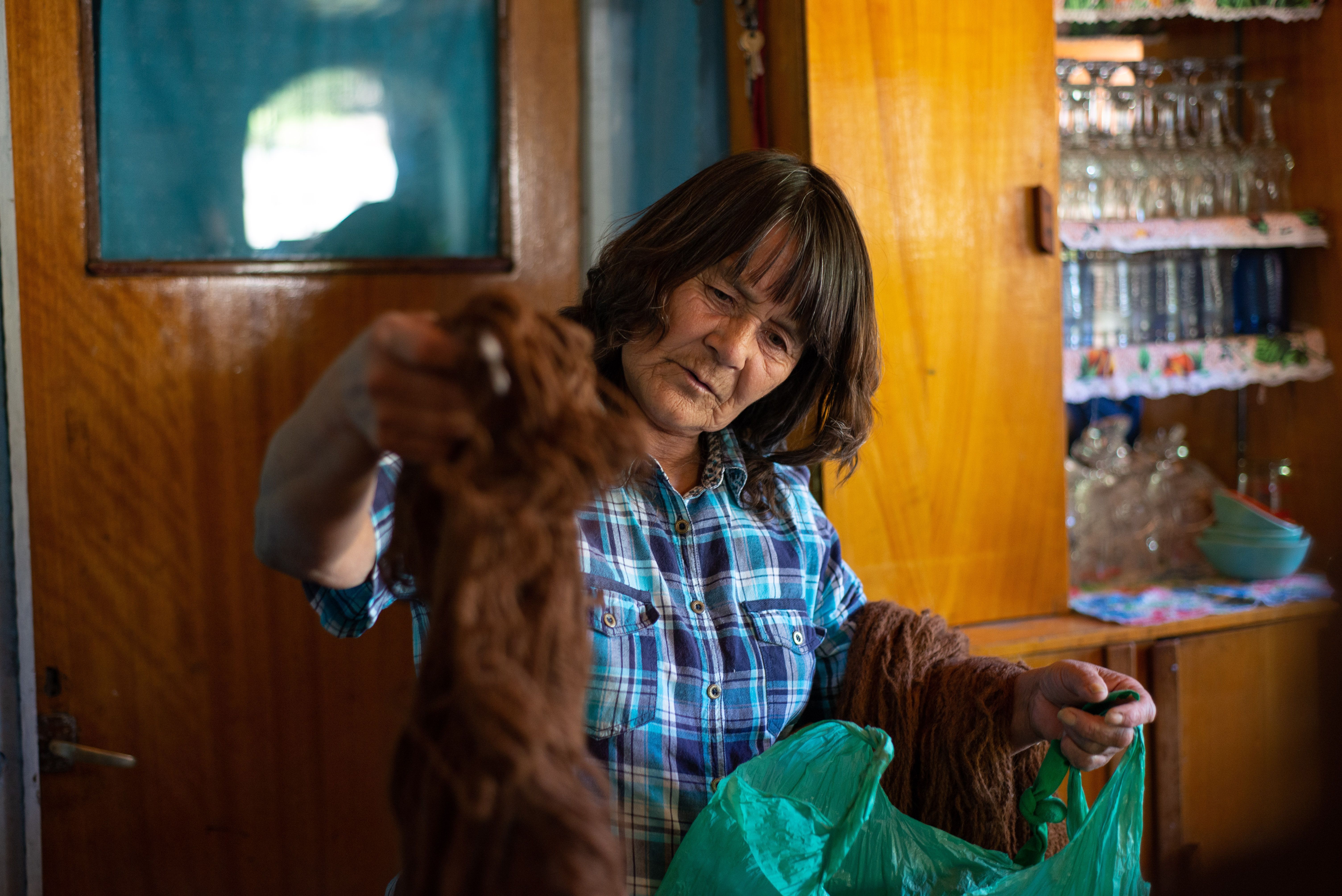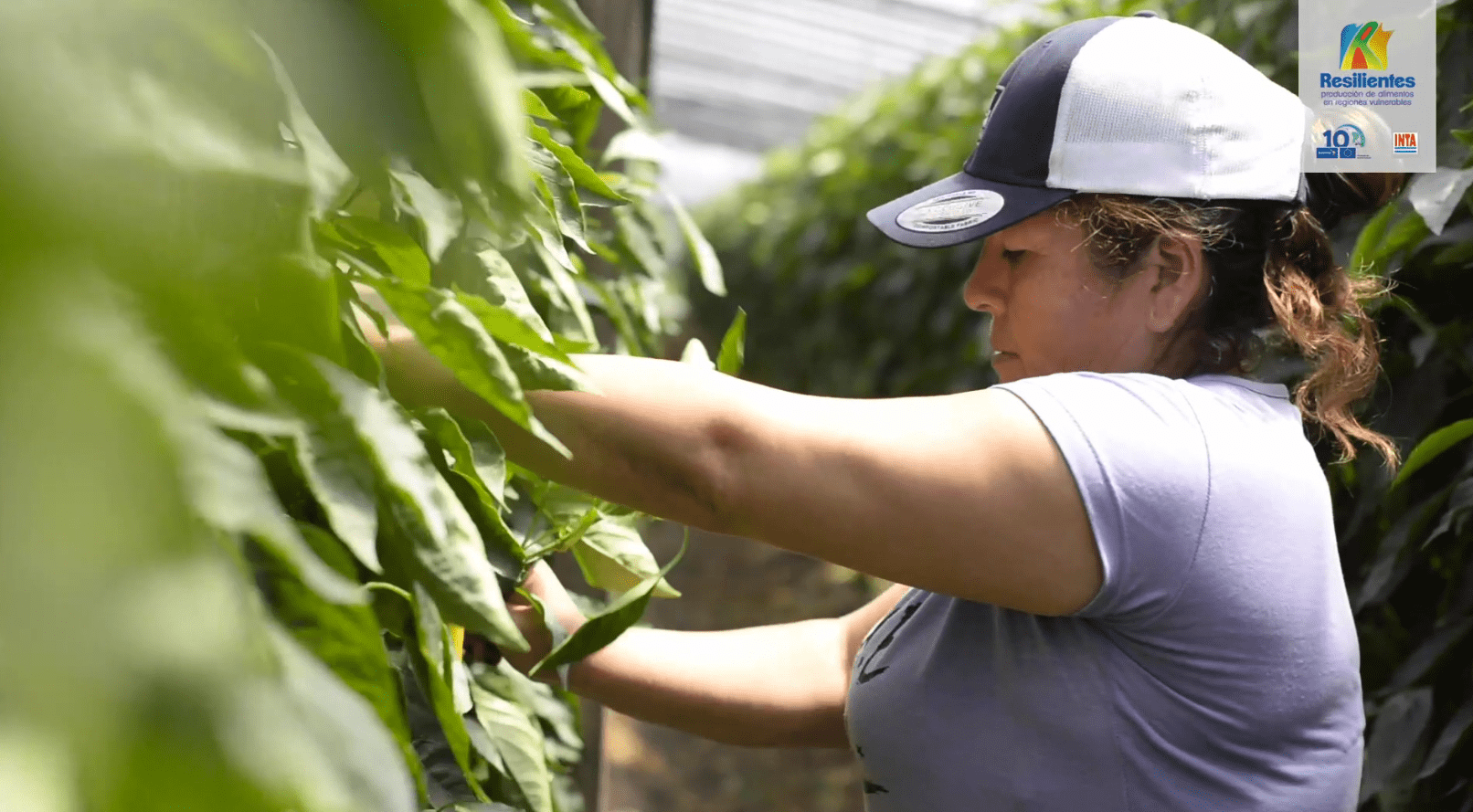Five women from one of the projects funded by EUROCLIMA+, implemented in Argentina and Colombia, share their life stories on International Rural Women's Day.
Five women from the "Resilients" project - Resilient Food Production in Horticultural and Livestock Systems - which is being implemented in Argentina and Colombia, as part of the actions of the EUROCLIMA+ programme, share their life stories on International Rural Women's Day. From extremely vulnerable regions, they verify the adaptive capacity of family farming systems for more resilient food production.
Cristina Parra, Yury Insuaste, Eva Chulqui, Claudia Rodriguez and Blanca San Martín, live in territories where their families are exposed to a high level of vulnerability to climate change. Dry areas with increasingly frequent and prolonged droughts; areas where the effects of climate change interact with strong transformations in land use, generating fires and floods, which increase risks and expel rural and peri-urban populations; even regions of high vulnerability in terms of the degradation of soil, water, flora and fauna resources in areas of high biodiversity such as the Colombian Amazon.
These are the ecosystems in which these rural women trace their life stories. In lower Covunco, along Route 14 in the centre of Neuquén province, very close to the city of Zapala, is the valley where Cristina Parra has her Eden: a hidden treasure in the middle of the Patagonian plateau. She, together with her two children and four other families who live on the banks of the Covunco stream (which in the Mapuche language means hot water), participate in the Resilients Project. These months they prepare the soil with agro-ecological fertilisers and seedlings for the season, to build the greenhouses using a regional technology that resists winds and snowfalls. The infrastructure will enable the production of vegetables throughout the year, with local and indigenous seeds adapted to the place and circulating from generation to generation. They also plan to begin work on water storage and the installation of the drip irrigation system, which will make the use of water resources more efficient. Right now, these days, they are waiting for the frost of the Saints, to start their potato, corn, and yellow bean crops.
 Yury Vanessa Insuaste lives in the Andean-Amazonian Piedmont, in the region of Caquetá, which is a strip that connects the Colombian Amazon with the Andes. This region is home to 29 ecosystems with high biological diversity, where indigenous communities and cattle-raising families live together. Caquetá is the department with the highest deforestation rate, with 70% of the land cleared by big capital which fights over land and grazing rights for the establishment of extensive cattle raising, in a context of increasing temperature and rainfall. Together with Yuri and the livestock families, the Resilients Project is working on the application of approaches and criteria for the conservation of biodiversity and ecosystem services that can guide sustainable ecological restoration and intensification for agroforestry systems.
Yury Vanessa Insuaste lives in the Andean-Amazonian Piedmont, in the region of Caquetá, which is a strip that connects the Colombian Amazon with the Andes. This region is home to 29 ecosystems with high biological diversity, where indigenous communities and cattle-raising families live together. Caquetá is the department with the highest deforestation rate, with 70% of the land cleared by big capital which fights over land and grazing rights for the establishment of extensive cattle raising, in a context of increasing temperature and rainfall. Together with Yuri and the livestock families, the Resilients Project is working on the application of approaches and criteria for the conservation of biodiversity and ecosystem services that can guide sustainable ecological restoration and intensification for agroforestry systems.

Claudia Rodriguez (woman in the photograph) and Eva Chulquiy share their story as migrants and their work as farmers. Both belong to organisations of producing families: the Association 1610 and the Union of Workers of the Land. Together with the MTE-Rural Workers' Movement, they make up the Resilients Project in La Plata, Florencio Varela and Berazategui, where the main horticultural area of the Argentine Republic is located. In this peri-urban space that provides fresh food to more than 11 million inhabitants, Claudia together with more than 50 horticultural families, is promoting the construction of rainwater collection, storage, and distribution systems, combined with pumping equipment for more efficient irrigation. They aim to minimise the impact of frequent power cuts caused by storms; in a greenhouse production area, families depend on electricity for irrigation, and if they do not have it, they must resort to other very expensive energies such as motor pumps with fossil fuels.

Eva Chulqui, meanwhile, is a Pioneer in agroecology for intensive production and she participates in an innovative experience selling bags in local markets, which became popular during the pandemic. Her association 1610 produces a wide range of agro-ecological vegetables and strawberries that are in high demand at fairs and consumer nodes in the Buenos Aires metropolitan area.
Together with her organisation, Eva participates in the Resilients Project, which in this case is strengthening alternative marketing circuits for the families' fresh vegetables.
With Eva and together with the 1610 Association, we are working on the co-design of technologies such as returnable containers for these vegetables and equipment for packing rooms where these families pack the produce.
Also in communication media to spread these fairer forms of consumption so that they can reach more consumers.

Blanca San Martín is not willing to leave Cerro Alto. There, in the Department of Pilcaniyeu, she raised her 7 children. And from that Patagonian cardinal point, which is her place in the world, she can bear witness to the changes in the climate. She lived through the snowstorms of the 70s, the harshness of that rough winter of 1984, and the volcanic ash that during this new century ravaged her 249 hectares and her entire cattle herd. A breeder and horticulturist, she participates with her husband Eustaquio in the Resilients Project.
In their field they are now working to optimise the management of slopes that have dried out or have very little water, to store them and to distribute them. They are also advancing in the management of compost and green manure, adding pastures for rotation on soils that are very poor in organic matter and have little water retention capacity. They are also building sheds to house animals in the winter season, an infrastructure useful for strategic supplementation of the mother animals in the last third of their gestation.
What do Cristina, Yury, Eva, Claudia and Blanca have in common? They know their habitat, the ecological processes, the climatic risks to which their families are exposed. Like so many women in Latin America, they verify the sensitivity and adaptive capacity of family farming systems. They are stewards of the environment. They contribute their knowledge to the co-design of feasible adaptation measures for more resilient food production. They are resilient women, and are part of the Resilients Project -Resilient Food Production in Horticulture-Livestock Family Farming Systems Farming in climate vulnerable regions of Argentina and Colombia - which is promoted through the thematic sector Resilient Food Production of the European Union's EUROCLIMA+ programme.
For more information
Cora Gornitzky, head of communication for the Resilients Project: This email address is being protected from spambots. You need JavaScript enabled to view it.
Communication for the sector Resilient Food Production: This email address is being protected from spambots. You need JavaScript enabled to view it.



